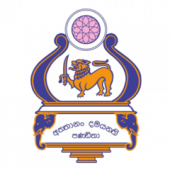- About Us
In June 1881, a significant event took place in Sri Lanka that would shape the future of its youth. Mr. JB Kal pioneered a cadet training program for school students under the name “Volunteer Corps.” This marked the first time such an effort was made in Sri Lanka and represented a major shift towards preparing young minds for life’s challenges ahead. The Volunteer Corps provided students with valuable skills in leadership, discipline, and teamwork while instilling patriotism through military drills and parades. Two months earlier, on April 1st of that year, another vital development occurred: Sri Lanka’s first-ever army volunteer unit – the “Lanka Infantry” – was established. These two events were intertwined as they both aimed to create a strong sense of nationalism among the country’s citizens, emphasizing their role in safeguarding their homeland against external threats. Over time, these programs continued to evolve into what is now known as the “Royal College Cadet Battalion,” which continues to inspire generations of young Sri Lankans today
- Goals & Targets
The aims of the school cadets program are multifaceted and encompass a wide range of goals. Firstly, cadets need to understand who they are as individuals and members of their community. By participating in this program, students can gain an understanding of the current and future role that they will play within society. It is also crucial for cadets to have an understanding of the legal basis upon which their organization rests, as well as an awareness of how different groups within it operate and interact with each other. Finally, gaining insight into how best to work effectively as part of a team within this force will empower cadets with valuable skills that can be utilized throughout their lives outside military contexts too
- Cadets & Cadet Corps
Being a cadet is not just about wearing the uniform and marching in formation. It’s a symbol of discipline, leadership, and patriotism that prepares young students for the challenges they’ll face in life. The Cadet Corps offers three types of cadets: Senior Cadets, Band Cadets, Police Senior Cadets, and Junior Cadets. These cadets undergo rigorous training to hone their skills in various fields such as music, law enforcement, and community service.
- Role of Cadets
As a school cadet, one has the responsibility to maintain a role model image in the school. This involves being a person of good character who upholds values such as respect and discipline. It is important to develop the reputation and respect of the school by promoting its prestige and honor through proper professional leadership. Being a role model for other students means achieving one’s talents and goals while adhering to the syllabus set by the Corps. A cadet should aim at developing their character while also being social and philanthropic towards others. They should steer clear of anti-social activities that may influence their peers negatively. Furthermore, as citizens, cadets should love, protect, and build their motherland. This requires them to be disciplined, law-abiding individuals who are friendly toward others in society. They must guide those with anti-social attitudes or drug habits by acting as ideals themselves. The commitment to public service is another core responsibility that every cadet must uphold both individually and as part of a team. Reaching one’s goals effectively while contributing towards the country’s development requires making the best use of time available. In conclusion, every school cadet must understand their roles well so they can execute them efficiently without fail. By doing this effectively, they become better individuals who contribute positively not only within their communities but also on larger scales like national development agendas.
- Board of Official
Sergeant :
Nidula Nimsara
Senior Copral :
Sanula Ranmitha
Commanding Officer :
Major Sirisoma Prathapasinghe
Senior Officers :
Sadew Nesara
Thevindu Nethmira
Nipun Shrimal
Chanuka Nethmira
Nuran Isuranga
Danuja Pabasara
Senith Hiruna
Sineth Vihanga
Sakuna Samarawickrama
Tharun Nimsara
Sithum Prabhashana
Hiruna Manudaya
Isara Udara
Yohan Yenusha
Danesh Nipun
Thulakshana Keshan
- Gallery
